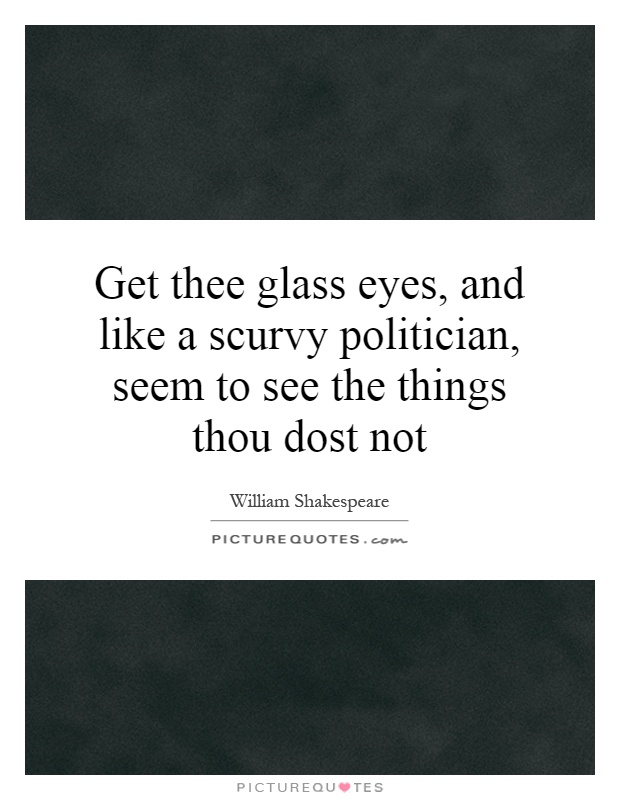Get thee glass eyes, and like a scurvy politician, seem to see the things thou dost not

Get thee glass eyes, and like a scurvy politician, seem to see the things thou dost not
In William Shakespeare's play "King Lear," the character of Gloucester utters the famous line, "Get thee glass eyes, and like a scurvy politician, seem to see the things thou dost not." This line is spoken in Act 4, Scene 6, as Gloucester reflects on the deceit and betrayal he has experienced at the hands of his illegitimate son, Edmund.The metaphor of "glass eyes" is a powerful one, suggesting a lack of true vision or insight. Glass eyes are artificial and do not possess the ability to see or perceive reality. In this context, Gloucester is advising someone to adopt a false facade, to pretend to see things that are not actually there. This advice is particularly poignant given the political climate of the play, where characters are constantly scheming and manipulating in order to gain power and control.
The comparison to a "scurvy politician" further emphasizes the theme of deception and corruption. Politicians are often associated with dishonesty and manipulation, willing to do whatever it takes to achieve their goals. By likening someone to a politician, Gloucester is suggesting that they should be willing to deceive others in order to advance their own interests.
The line also speaks to the broader themes of appearance versus reality and the nature of truth in "King Lear." Throughout the play, characters are constantly deceived by others, leading to tragic consequences. The idea of "seeming to see the things thou dost not" highlights the dangers of relying on appearances and the importance of looking beyond the surface to uncover the truth.
Overall, Gloucester's line serves as a cautionary tale about the dangers of deception and the consequences of failing to see things as they truly are. It is a powerful reminder of the complexities of human nature and the need to be vigilant in the face of deceit and betrayal.












 Friendship Quotes
Friendship Quotes Love Quotes
Love Quotes Life Quotes
Life Quotes Funny Quotes
Funny Quotes Motivational Quotes
Motivational Quotes Inspirational Quotes
Inspirational Quotes